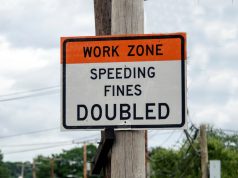Nicholas Kambitsis is an entrepreneur in the convenience and gasoline industry. In the ever-evolving landscape of urban development, the concept of adaptive reuse has emerged as a beacon of innovation and sustainability. In the following article, Nicholas Kambitsis discusses how investors can repurpose their real estate for new ventures and endless opportunities.
One of the best lots to repurpose is a decommissioned gasoline station.
But isn’t repurposing it risky because it was a gas station before? Furthermore, won’t it be challenging to establish new businesses, especially if the average size of a fuel station lot is only one to two acres?
As it turns out, this is not exactly the case.
But how so?
Below, Nicholas Kambitsis explains the proper measures an aspiring entrepreneur can take when building an establishment in place of a decommissioned gasoline station, as well as some ideas on which businesses to construct there.
Nicholas Kambitsis Discusses Safety First
Most old gas stations remain that way because people fear the risks the lot comes with – such as explosive gasses and toxic fumes.
However, operating a business there can be safe – as long as the establishment and entrepreneur meet the Environmental Protection Agency’s UST (Underground Storage Tank) regulations.
Nicholas Kambitsis says that once the business owner complies with the industry codes and standards, they can then safely construct a business in a decommissioned station.
But what kind of businesses are suitable here?
Businesses to Operate in Decommissioned Gasoline Stations
Nicholas Kambitsis says that most decommissioned gasoline stations are located in strategic areas. Therefore, expect a lot of visual traffic. However, to get customers in the door, consider establishing these businesses:
Convenience Store
Roughly half of the American population visits their local convenience store weekly. That said, opening a convenience store in an old gas station is quite profitable, as these stores don’t require a huge lot for operations.
There might also be already an old convenience store building from when the fuel station was in operation. If so, it may be an option to simply revamp and redesign the existing building for lesser construction costs and expand when needed.
Fast-Food Restaurant
Nicholas Kambitsis notes that operating a fast-food franchise in a decommissioned gas station is rather easy. For one, there’s no need to market or advertise much. Chances are that the restaurant chain is already established and known to many.
Secondly, fast-food restaurants don’t require a vast amount of parking space. Furthermore, depending on the size of the lot, owners can even construct a drive-through for their fast-food restaurants.
But if operating a franchise isn’t optimal, try managing a standalone food business instead.
 Sandwich Shop
Sandwich Shop
Sandwich shops are another easy-to-operate food business. The ingredients are easy to store in the establishment, and most of them stay fresh, explains Nicholas Kambitsis.
If the lot isn’t big enough, entrepreneurs can also choose to operate a kitchen elsewhere and have their cooked ingredients delivered to them each day (or on the most suitable schedule).
As an alternative with fewer construction projects, consider a car wash instead.
Car Wash
A car wash business is an excellent option for start-up entrepreneurs because it doesn’t require a lot of investment capital. Starting with a simple power wash during the first few years of operating a car wash business in an old gas station is a good option.
Nicholas Kambitsis explains that as car wash business owners progress, they can employ more staff and eventually invest in automatic systems.
However, regardless of what business is being operated in the decommissioned gas station, business owners must make sure they obtain all the required licenses, documents, and permits.
Permits and Licenses
To operate a business, entrepreneurs must ensure they have the following documents:
- City or County Business License
- Employee Identification Number (EIN)
- Occupation Permit
- Health Permit
Moreover, Nicholas Kambitsis explains that, depending on the nature of the business, they may also need additional permits, such as:
| Business Type | Licenses/Permits |
|---|---|
| Convenience Store |
|
| Restaurant |
|
| Car Wash |
|
Summary
Gas station owners are at an optimal advantage when looking to change pace in business – they can transform these locations into new profitable businesses – from quaint mom-and-pop car wash services to giant fast-food chain franchises.
Nicholas Kambitsis emphasizes that throughout this transformative journey, meticulous adherence to Environmental Protection Agency regulations is paramount. Once compliance is secured, the path to profitability is already paved, especially given the strategic locations that many gas stations already occupy. With careful planning, expect a surge of eager customers that are drawn to these revamped spaces in no time. The potential for success is as boundless as the vision behind the transformation.








